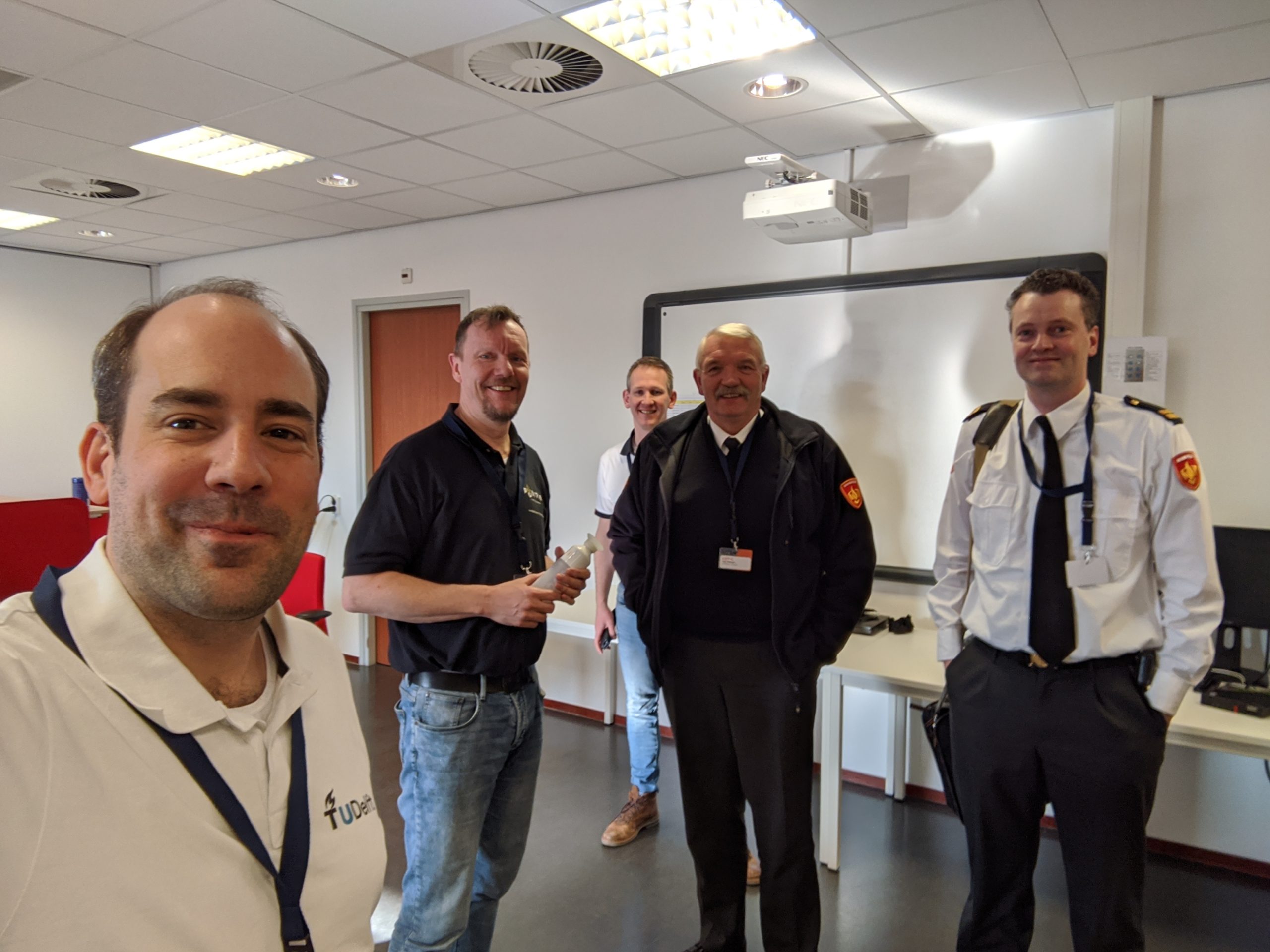Crises are all in a day’s work for Kenny Meesters. He researches and teaches crisis management at TPM. He joined the national operational corona team.
Kenny Meesters (left) with his new colleagues from the LOT-C. (Photo: Kenny Meesters on Twitter)
The Landelijk Operationeel Team Corona (LOT-C, national operational corona team) was set up last week. Why was it necessary?
“The LOT-C team connects the various safety regions, institutions and organisations and the national organisations. The team advises substantively and supports the operational services in various ways. One example is to better align the supply and demand. We are a connection point both between regions and between regional and national level.”
I see that the fire fighting services and the police are involved. Who else is involved?
“At the moment, there are people from the police force, defence, fire service, safety regions and medical services. TNO, the knowledge institution, is also on board and I am here on behalf of TU Delft. This is not everyone, but it gives you an idea.”
You study information management during disasters and crises at TU Delft. What is your role in the LOT-C?
“My role is mostly to bring some structure to how the LOT-C deals with the coronavirus. There are many organisations and a lot of institutions involved in the corona crisis. There are also a lot of people with questions. We are here to bring structure to the information flows. This is partly a technical issue, but it is also largely about thinking in frameworks and structures. Imagine that you tip over a container of LEGO® and need to sort them all out. How do you do this? And how will you do this when people are constantly walking in and out, removing and bringing blocks.”
‘I am now learning on-the-job what does and does not work’
How can you make sure that the communication remains clear given the number of entities involved?
“We work with all sorts of disciplines, but to the outside world, we need to be comprehensive and clear. There is input, processing and output. We receive information from doctors, companies that offer help and government institutions. The information is usually contained in emails or sometimes in spreadsheets. It needs to be processed and to do this we need a framework. We need a process that determines where we place the information. For the output, you first need to know what information is needed so that you can filter and collate the data. And, the other way around, there may be a need for information, but we have no data. Then we need to proactively go looking for it.”
The headquarters are in Zeist. How often do you meet?
“People walk in and out all the time. We stick to the social distancing rules and make sure that there are no more people present than are needed. We need to consult to put together the information systems, and we do that here. But most people in the team work remotely and are elsewhere. The job of collecting and processing the information is done throughout the Netherlands.”
Your photo on Twitter shows five people standing close together. What does that say?
“It just looks like that because of my selfie camera. In reality we were standing further apart than what it looks like on the photo. There is plenty of space in the fire brigade’s barracks. We also wash our hands frequently and follow all the prevention rules strictly.”
What is the relationship between your work with the corona team and your work at TU Delft?
“I now do much of my research work and teaching remotely. I have made some agreements with my supervisor. We both believe that under these circumstances, you should not stay on the sidelines if you are doing research into crisis management. If you have the knowledge, you must contribute as much as you can. As far as I am concerned, my work for the LOT-C is part of my research. I am now learning on-the-job what does and does not work.”
In that sense, is it participatory research?
“Yes, definitely. It is easy to assess a disaster and say what should have been done after the event. But as Prime Minister Rutte says, when doing crisis management you have to take 100% of the decisions with only 50% of the information. We have limited time at the LOT-C. We must move forward. As a researcher, it is important for me to keep the bigger picture of everything that is happening in mind. I can use my knowledge here. And it goes both ways. I can learn where more research needs to be done and how we could make our research more useful or relevant.”
Do you have a question or comment about this article?
j.w.wassink@tudelft.nl


Comments are closed.